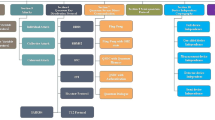Abstract
Security is the crucial aspect of all applications and networks. Due to the increasing use of the Internet all over the world, the importance of security is also increasing. Cryptography is used for converting plaintext into ciphertext for securing it from hackers. Based on speed and efficiency, the best cryptographic algorithm is decided among various other algorithms. With the advancement in time, attackers are becoming smarter than in the past, e.g., quantum adversaries. So to secure the network from those attacks, quantum cryptography is used, which is based on the laws of quantum mechanics. In this paper, we have compared various classical and quantum cryptographic algorithms based on different parameters in different settings to determine one of the best algorithms in both cryptography techniques (classical and quantum).
Access this chapter
Tax calculation will be finalised at checkout
Purchases are for personal use only
Similar content being viewed by others
References
Abbas, Y.A., Abdullah, A.A.: Efficient hardware implementation for quantum key distribution protocol using fpga. In: IOP Conference Series: Materials Science and Engineering, vol. 1076, p. 012043. IOP Publishing (2021)
Arrighi, P., Salvail, L.: Blind quantum computation. I. J. Quantum Inf. 4(05), 883–898 (2006)
Bennett, C.H., Brassard, G., Breidbart, S.: Quantum cryptography ii: How to re-use a one-time pad safely even if p= np. Nat. Comput. 13(4), 453–458 (2014)
Broadbent, A., Fitzsimons, J., Kashefi, E.: Universal Blind Quantum Computation 50th Annual IEEE Symposium on Foundations of Computer Science, 2009, focs’09 (2009)
Broadbent, A., Schaffner, C.: Quantum cryptography beyond quantum key distribution. Des. Codes Crypt. 78(1), 351–382 (2016)
Chaudhary, N., et al.: A pedagogical approach to quantum computing using spin-1/2 particles. In: 2006 6th IEEE Conference on Nanotechnology, vol. 2, pp. 882–885. IEEE (2006)
Chhabra, R., Verma, S., Krishna, C.R.: A survey on driver behavior detection techniques for intelligent transportation systems. In: 2017 7th International Conference on Cloud Computing, Data Science and Engineering-Confluence, pp. 36–41. IEEE (2017)
Childs, A.M.: Secure Assisted Quantum Computation. arXiv preprint quant-ph/0111046 (2001)
Ciesla, R.: Implementations of QKD. In: Encryption for Organizations and Individuals, pp. 247–256. Springer (2020)
Damgård, I.B., Fehr, S., Salvail, L., Schaffner, C.: Cryptography in the bounded-quantum-storage model. SIAM J. Comput. 37(6), 1865–1890 (2008)
Datta, P., Sharma, B.: A survey on IoT architectures, protocols, security and smart city based applications. In: 2017 8th International Conference on Computing, Communication and Networking Technologies (ICCCNT), pp. 1–5. IEEE (2017)
Dianati, M., Alléaume, R.: Transport layer protocols for the secoqc quantum key distribution (QKD) network. In: 32nd IEEE Conference on Local Computer Networks (LCN 2007), pp. 1025–1034. IEEE (2007)
Dixit, P., Gupta, A.K., Trivedi, M.C., Yadav, V.K.: Traditional and hybrid encryption techniques: a survey. In: Networking Communication and Data Knowledge Engineering, pp. 239–248. Springer (2018)
Goldreich, O., Micali, S., Rivest, R.: A fair protocol for signing contracts. IEEE Trans. Inf. Theory 36(1), 40–46 (1990)
Kader, H., Hadhoud, M.: Performance evaluation of symmetric encryption algorithms. In: Performance Evaluation, pp. 58–64 (2009)
Lakshmi, P.S., Murali, G.: Comparison of classical and quantum cryptography using QKD simulator. In: 2017 International Conference on Energy, Communication, Data Analytics and Soft Computing (ICECDS), pp. 3543–3547. IEEE (2017)
Merkle, R.C.: A digital signature based on a conventional encryption function. In: Conference on the Theory and Application of Cryptographic Techniques, pp. 369–378. Springer (1987)
Nanda, A., Puthal, D., Mohanty, S.P., Choppali, U.: A computing perspective of quantum cryptography [energy and security]. IEEE Consum. Electron. Mag. 7(6), 57–59 (2018)
Patil, P.A., Boda, R.: Analysis of cryptography: classical verses quantum cryptography. Int. Res. J. Eng. Technol. (IRJET) 3(5) (2016)
Raddo, T.R., Rommel, S., Land, V., Okonkwo, C., Monroy, I.T.: Quantum data encryption as a service on demand: Eindhoven QKD network testbed. In: 2019 21st International Conference on Transparent Optical Networks (ICTON), pp. 1–5. IEEE (2019)
Wiesner, S.: Conjugate coding. Sigact News 15, 78–88 (1983)
Wiesner, S.: Conjugate coding. ACM Sigact News 15(1), 78–88 (1983)
Wootters, W.K., Zurek, W.H.: A single quantum cannot be cloned. Nature 299(5886), 802–803 (1982)
Author information
Authors and Affiliations
Corresponding author
Editor information
Editors and Affiliations
Rights and permissions
Copyright information
© 2022 The Author(s), under exclusive license to Springer Nature Singapore Pte Ltd.
About this paper
Cite this paper
Mangla, C., Rani, S. (2022). Comparative Study of Classical and Quantum Cryptographic Techniques Using QKD Simulator. In: Satapathy, S.C., Peer, P., Tang, J., Bhateja, V., Ghosh, A. (eds) Intelligent Data Engineering and Analytics. Smart Innovation, Systems and Technologies, vol 266. Springer, Singapore. https://doi.org/10.1007/978-981-16-6624-7_52
Download citation
DOI: https://doi.org/10.1007/978-981-16-6624-7_52
Published:
Publisher Name: Springer, Singapore
Print ISBN: 978-981-16-6623-0
Online ISBN: 978-981-16-6624-7
eBook Packages: Intelligent Technologies and RoboticsIntelligent Technologies and Robotics (R0)




